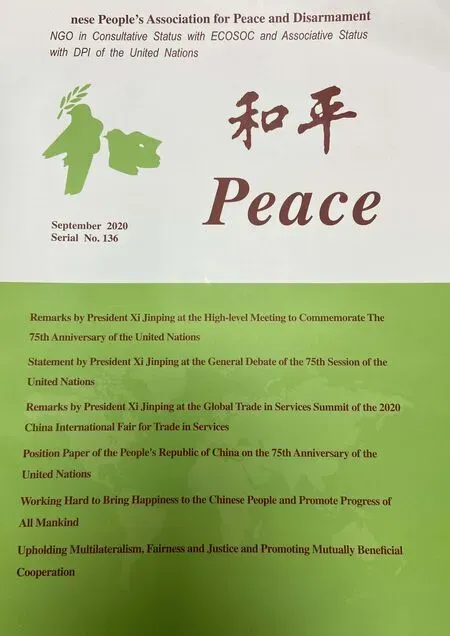WHO Secretary-General Tedros Adhanom Puts Forward Four Suggestions To Restart Economic and Social Life
WHO Secretary-General Tedros Adhanom Puts Forward Four Suggestions To Restart Economic and Social Life
Liu Qu, Xinhua News Agency

Xinhua news agency, Geneva, August 31 -- World Health Organization (WHO) Secretary-General Tedros Adhanom put forward four suggestions on reopening economic and social life in various countries during the pandemic period, especially emphasizing the protection of vulnerable groups including older people, those with underlying conditions andother basic diseases, so as to reduce their new coronary death rate as far as possible.
"WHO fully supports efforts to reopen the economy and society," Tedros said at a press conference on the same day. We want to see children go back to school and people returning to the workplace – but we want to see it done safely. At the same time, no country can pretend that the epidemic is over. "Tedros again warned that the novel coronavirus is highly transmissible and potentially fatal to all age groups, and most people are still susceptible to infection.
He said that if countries are serious about opening up, they must be serious about suppressing transmission and saving lives.This may seem like an impossible balance, but it’s not. It can be done, and it has been done. But it can only be done if countries are in control of transmission.
He stressed that the more control countries have over the virus, the more they can open up.Opening up without having control is a recipe for disaster.We believe there are four essential things that all countries, communities and individuals must focus on to take control.
First, prevent amplifying events. COVID-19 spreads very efficiently among clusters of people.In many countries, we have seen explosive outbreaks linked to gatherings of people at stadiums, nightclubs, places of worship and in other crowds.Preventing these amplifying events is essential, but there are ways to hold gatherings safely in some places.Decisions about how and when to allow gatherings of people must be taken with a risk-based approach, in the local context.Countries or communities experiencing significant community transmission may need to postpone events for a short time to reduce transmission.
Second, reduce deaths by protecting vulnerable groups, including older people, those with underlying conditions and essential workers.By protecting those who are most at risk, countries can save lives, prevent people becoming severely ill, and take the pressure off their health systems.
Third, individuals must play their part by taking the measures we know work to protect themselves and others – stay at least one meter away from others, clean your hands regularly, practice respiratory etiquette, and wear a mask.Avoid the “three Cs”: closed spaces, crowded places and close-contact settings.
Fourth, governments must take tailored actions to find, isolate, test and care for cases, and trace and quarantine those contacts. Widespread stay-at-home orders can be avoided if countries take temporary and geographically-targeted interventions.
Tedros stressed that every life, be it young or old, is precious, we must try our best to save all of them.
- Peace的其它文章
- CPAPD International Exchanges
- Sharing Thick and Thin Calling for Unity and Cooperation
- Message on the International Day of Peace From UN Secretary-General Antonio Guterres
- Upholding Multilateralism, Fairness and Justice and Promoting Mutually Beneficial Cooperation---Keynote Speech by State Councilor and Foreign Minister Wang Yi At the International Seminar on Global Digital Governance
- Working Hard To Bring Happiness to the Chinese People and Promote Progress of All Mankind
- Remarks by H.E. Xi Jinping President of the People's Republic of China At the Global Trade in Services Summit of The 2020 China International Fair for Trade in Services

